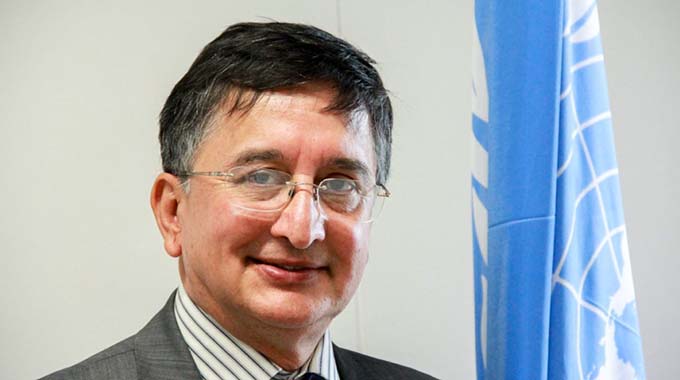Knowing your status keystone to end HIV

Bishow Parajuli Correspondent
ON December 1, 2018, Zimbabwe and the world at large marked 30 years of HIV and AIDS activism and solidarity under the banner of World AIDS Day.
World AIDS Day is a day commemorated internationally to remember the millions of people who have lost their lives to AIDS-related illnesses, many of whom died because they could not access HIV services due to stigma, discrimination and the criminalisation of key populations.
To date, more than 77 million people globally have become infected with HIV, and more than 35 million have died of an AIDS-related illness.
After 30 years, progress to close the tap on HIV is visible as people living with the virus are living longer and productive lives.
Massive progress has been made in diagnosis and treatment, and prevention efforts have avoided millions of new infections including through mother-to-child transmission.
Advancements in the medical field have made life-saving treatment possible, but there is no cure for HIV yet. So, the fight to end this pandemic is certainly not over. We still have the last mile to go and working together as a community is essential to ending HIV by 2030.
In Zimbabwe, much progress has been achieved in providing treatment to over 1.1 million people living with HIV. In addition, the prevalence of HIV has decreased from close to 30 percent 10 years ago, to just under 14 percent as of 2017, while new HIV infections have been reduced by over 45 percent in the last five years.
The new infection rates, albeit on the decline, are still far too high. Behind every data point is an individual and a family and a community that suffers, that hopes and prays, that deals with death and celebrates life.
The UN in Zimbabwe commends the Government of Zimbabwe in leading the country towards ending AIDS as a public health threat by 2030. This is an integral part of the 2030 Agenda for Sustainable Development and its 17 goals – the SDGs.
Investments in the health of the nation is critical for the achievement of the SDGs. The consistent and innovative Government intervention of an AIDS levy, and the introduction of five percent health levy on all airtime purchases are some of the positive measures of domestic financing for sustainable services that must be encouraged.
I also take note the increase in the allocation of the 2019 National Budget as a step in the right direction, albeit far from the African countries average of 13 percent, and by far short of the Abuja Declaration of 15 percent.
In this regard, the continued contributions of development partners – namely Sweden; the Global Fund for AIDS, TB and Malaria; the US President’s Emergency Plan for AIDS Relief (PEPFAR); the European Union, as well as the role played by the UN system, civil society organisations and indeed communities are critical to achieve this goal, while Government strives to turn-around the economy for sustainable domestic financing of social services.
Despite the positive strides. There can be no complacency. The pace of progress in the fight against HIV and AIDS is not matching global ambition. New HIV infections are not falling rapidly enough and resources for a sustainable response are insufficient.
Stigma and discrimination are still holding people back, especially key populations – including sex workers, people who inject drugs, prisoners and migrants – and young women and adolescent girls.
Moreover, one in four people living with HIV do not know that they have the virus, impeding them from making informed decisions on prevention, treatment and other care and support services.
That is why the World AIDS campaign this year is encouraging everyone to know their HIV status and their viral load.
Knowing one’s status enables one to roll on treatment required if the test comes out positive, or access information needed to prevent infection if they are HIV negative.
The focus on viral load is also important. If people living with HIV do not know their viral load, they will not be sure that the treatment is effective in protecting their health and preventing HIV transmission to others.
Health is wealth, and we are all well served to take control of our health and know our status across these diseases.
Prevention is strategic, cost effective and better than cure, and an important step to prevention and stemming the HIV pandemic is to know one’s status.
For a response to be effective and successful over time, it must go beyond immediate care and livelihood needs. We must deeply understand and address the underlying causes and consequences of attitudes and behaviors that help such an epidemic to thrive.
Issues of gender inequality, disempowerment, unemployment – particularly among youth and women, economic hardship, and harmful practices that encourage sexual and gender-based violence are all contexts that enable HIV to flourish.
The evidence is clear: to stop this epidemic, these factors must be addressed head on, just as much as providing access to ARVs, voluntary testing and counselling.
The United Nations will continue to walk with Zimbabwe at every step until the scourge of HIV and AIDS is dealt with once and for all.
· Mr Bishow Parajuli is the United Nations resident coordinator in Zimbabwe.










Comments